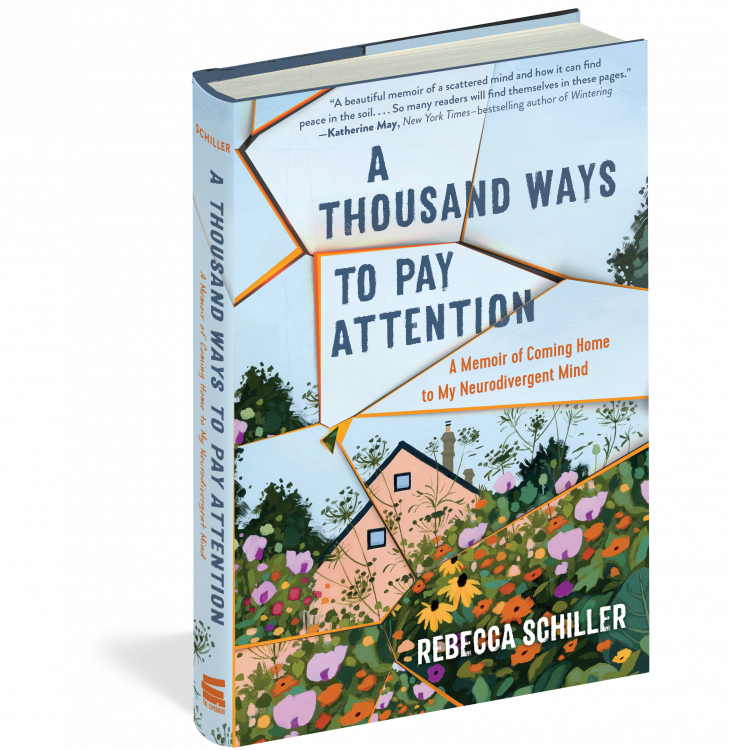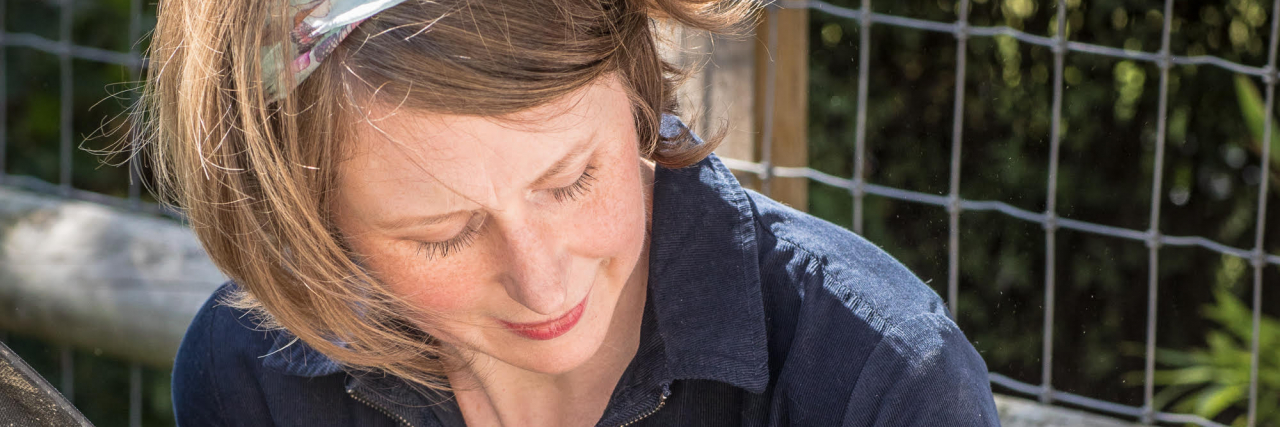'I Don’t Have ADHD, I Am ADHD': Finding Peace Within My Newfound Neurodivergence
An adapted excerpt from Rebecca Schiller’s A Thousand Ways to Pay Attention: A Memoir of Coming Home to My Neurodivergent Mind
The school term has ended and my six-year-old son, Arthur, is helping me take care of the animals. I spot Alert, Arthur’s small rooster, sitting near a large rubble bag, perched in a way that makes me wonder.
As if from a distance, I observe what happens inside my mind next. Here is a tiny abnormality that many wouldn’t notice. I see it and then it grows in size. I zoom in on the rooster and then out from him in every direction, looking for something that I haven’t yet seen and itching with the need to find it. My eyes, ears, and nose get to work in the here and now; my brain roves backward, forward, and sideways—across things I have experienced, am planning, or heard of once five years ago. Then it clicks and the itch stops. I think I have worked it out.
Other relevant stories:
• How to Increase Dopamine ADHD
• ADHD and Narcissism
• Good Jobs for People With ADHD
• What is ADHD?
At my instruction Arthur steps forward and opens the bag. We peer in and then he laughs and points: I was right. Inside, hidden under the folded cover, sits Speckles the hen, as I knew she would be. Though I’ve never consciously noticed, I realize I have long known that she is Alert’s favorite and that the rooster never strays too far from her feathery side. He has been guarding her as she sits.
This is what I am for. Spotting things before they happen and attuned to hidden moments. I naturally look for and find clues and bring them together to make a solution before anyone has mentioned that there is a puzzle. It is hard to reconcile this with a “deficit” of attention and understand how they are just two expressions on the same face.
So much is presumed and so little understood about ADHD. I understood so little myself until recently and even now I’m only beginning to dip my toe in the complicated waters around the acronym. The more I read the less I’m sure about the model that sees me as a lifelong disorder, an abnormality to be managed, and a dysfunctional set of symptoms that can be minimized but will never be overcome.
I instinctively prefer the term neurodivergent and am persuaded by what I have been reading about “the neurodiversity paradigm.” In this emergent way of framing autism, ADHD, dyspraxia, dyslexia, and a range of other neurological and mental health conditions, people who had been sufferers of a condition with undesirable, abnormal symptoms are transformed into individuals whose brain function may diverge from the average function more than most but who are not faulty products to be returned to the factory for fixing.
When looking at the world through this lens I do not have ADHD, I am ADHD. The issues I have faced are real and are indeed connected to ADHD. The acronym can be a helpful way to understand, overcome, or accept aspects of myself and my life, but it can also be problematic, reinforcing the idea that there is a single, correct way to think and be.

The neurodiversity paradigm subverts the idea that I am abnormal or deficient and that a dysfunctional brain is the root of my problems. If we accept that the natural world thrives on variety, and each organism in every species is meant to deviate from the others, then the normal baseline against which a deficit can be defined simply disappears. Variety is what is normal, and an agreed-upon “normal” height, weight, speed of movement, and concentration span is something societies make up for their convenience and change when they want to, without warning, according to who is in charge and what benefits them most.
Those with the most privilege and power prefer to greenlight the qualities of people who fit in most easily, are least disruptive, most productive, and who mirror the beliefs, qualities, and preferences they hold themselves: the “neurotypical.” According to this way of thinking, I can’t and shouldn’t be corrected so as to better fit their constructed “normal.” The world should recognize my right to exist as I am and allow me to do so without being harmed.
The activist in me is drawn to this, and I can feel my natural resistance to being fed into the correction program that much of the medical literature, diagnosis, treatment, ADHD life hacks and organization tips, and the broader societal understanding of ADHD evokes for me deepening.
But I’m wary too. There is a large part of me who can’t bear the thought of being “disordered” and “abnormal” and this approach is rather convenient for her. I would love to look away from the chaotic, hyperactive, disordered reflection I’ve been shown and see someone else, but I do have tangible issues, I do want help, and I’m cautious of throwing away the basis on which I’ve been told I can get that help. It is no mystery to me why some of those more profoundly affected by the way their brains or their child’s/partner’s/mother’s brain works are resistant to the idea of dismissing the pathology of a condition that is causing them so much distress or which they have had to fight so hard to get recognition of and treatment for.
To assert myself as someone who struggles and needs support while resisting the idea that I am the problem is a paradox I struggle to reconcile myself to.
In the present moment, I tell Arthur to reach carefully into the bag and feel underneath Speckles—she is a good hen and doesn’t peck him, broody as she is. He feels for and finds them, a little nest of white eggs as warm as the fireside and it’s as if I have won a prize. In the future, which starts now, I tell myself to keep reaching carefully into my mind and feel for the things that make drawn to find what is hidden. To believe that I am meant to be this way —even when it is hard. Especially when it is hard.

